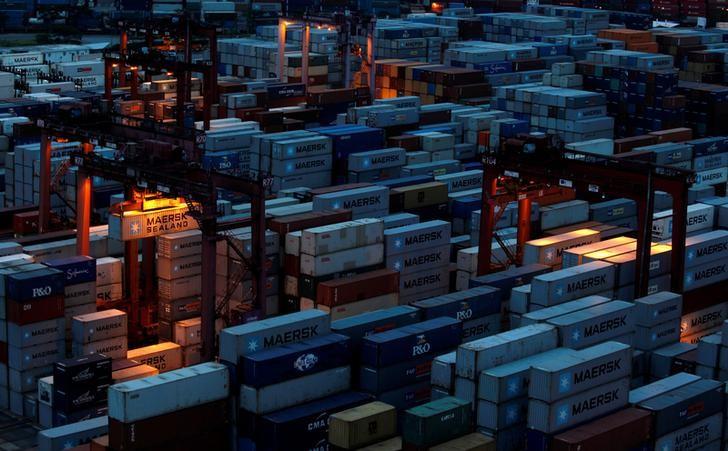
Hong Kong handed out billions of dollars in tax cuts and poverty relief on Wednesday to reflate its economy, and projected a brighter outlook this year amid growing concerns over rising trade protectionism and higher interest rates.
HONG KONG Hong Kong handed out billions of dollars in tax cuts and poverty relief on Wednesday to reflate its economy, and projected a brighter outlook this year amid growing concerns over rising trade protectionism and higher interest rates.
The government bumped up its economic forecast for 2017 by a full percentage point to 2 to 3 percent and said the economy grew at 1.9 percent last year, faster than expected by economists.
The trade-reliant economy is carrying more momentum in the new year due to a pick-up in exports and private consumption, and a more stable Chinese economy, helping to boost annual growth to 3.1 percent in the final quarter of 2016 – its fastest since the June quarter of 2015.
“The property market was much better in the December quarter and that filtered into the pick-up in private consumption but I don’t see that momentum sustaining due to rising U.S. interest rates,” Kevin Lai, chief economist for Asia excluding Japan at Daiwa Capital Markets said.
The Hong Kong dollar is pegged to the greenback and expectations of two to three U.S. interest rate hikes this year will trigger increases in local mortgage rates.
Financial Secretary Paul Chan said in his maiden budget address that an improved labor market and construction projects worth nearly HK$87 billion this year, had also bolstered consumer confidence that would feed into the local economy. He warned, however, that the city’s astronomical property prices continued to be an issue.
“The uncertain external environment and interest rate trend may trigger abrupt shifts in capital flows and heighten volatility in local asset prices, with repercussions on consumption and investment sentiments and on macro-economic stability,” Chan told lawmakers.
The strong growth data sent the local stock market .HSI to a fresh 18-month high.
Credit Rating Agency Moody’s said in a research note that the budget was relatively balanced and fiscally prudent but doubted Hong Kong would meet its bullish GDP forecast.
“We do not expect a material rebound in global trade which will weigh on Hong Kong’s exports, while growth in domestic demand will be somewhat dampened by higher interest rates,” Moody’s wrote. “We expect three to four interest rate increases by the U.S. Federal Reserve this year which will push interest rates up in Hong Kong.”
For highlights of the budget
On the property market, which Chan called exuberant and “out of tune with the local economy” despite a raft of cooling measures, he said the government would “substantially” increase residential flat supply in the next few years.
SHARING THE WEALTH
Hong Kong’s provisional budget surplus was a much higher than expected HK$92.8 billion ($11.96 billion) for the 2016/17 financial year, far in excess of the HK$11 billion last year, with fiscal reserves of HK$935.7 billion.
The government said some HK$61 billion would be plowed into elderly services, sports development, youth development and developing the high technology sector.
Chan said Hong Kong could afford to be more proactive with its spending and his measures to “share the fruits of economic development” would help stimulate domestic demand, stabilize the economy and help the job market.
The government’s populist-leaning budget comes at a time of flux for Hong Kong amid rising political tensions and as the city in July marks the 20th anniversary of its handover from British to Chinese rule in 1997. The city will also usher in a new leader in a March 26 election involving a 1,200-member election committee stacked with Beijing loyalists.
Chan’s predecessor, longstanding former financial secretary John Tsang, is one of several candidates eyeing the top job.
The package of one-off economic handouts and stimulus measures include reducing salaries tax and profits tax up to a ceiling of HK$20,000 per individual or firm, that would cost the government some HK$18.3 billion, as well as extra social welfare handouts for the elderly and disabled.
Total expenditure would increase to more than HK$490 billion in 2017-18 from HK$380 billion in 2012-13, Chan said.
Sectors such as tourism and catering that have struggled from a slump in visitors from China would receive help such as from waiving of license fees for travel agents, guesthouses and restaurants, and pumping more money into tourism promotion.
(Additional reporting by Anne-marie Roantree, Saikat Chatterjee, Twinnie Siu- Editing by Jacqueline Wong)
 0 comments
0 comments





